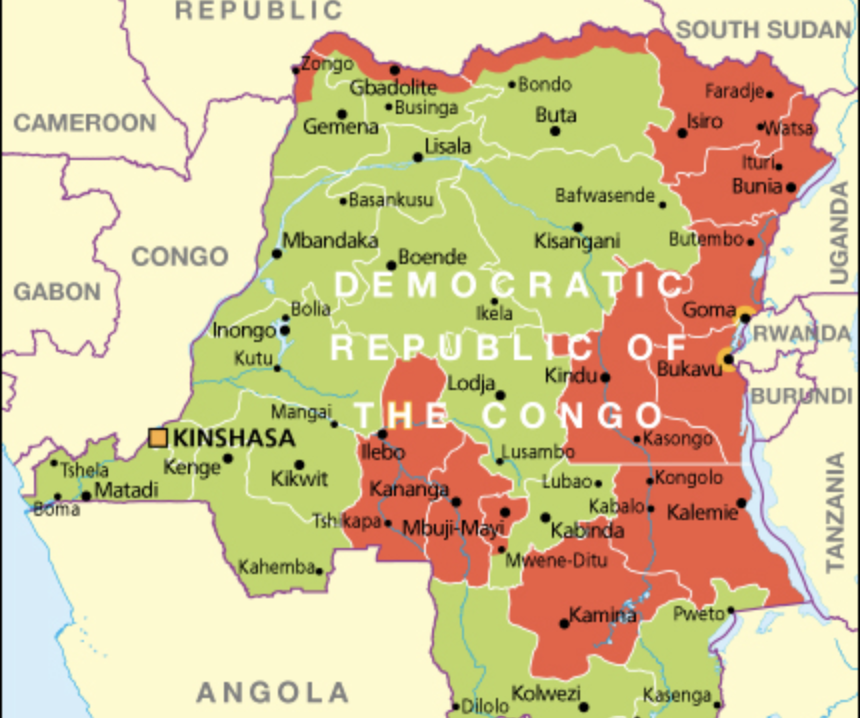What is Ebola and what is the risk to travellers?
The NHS says the risk to travellers is ‘extremely low’

Your support helps us to tell the story
From reproductive rights to climate change to Big Tech, The Independent is on the ground when the story is developing. Whether it's investigating the financials of Elon Musk's pro-Trump PAC or producing our latest documentary, 'The A Word', which shines a light on the American women fighting for reproductive rights, we know how important it is to parse out the facts from the messaging.
At such a critical moment in US history, we need reporters on the ground. Your donation allows us to keep sending journalists to speak to both sides of the story.
The Independent is trusted by Americans across the entire political spectrum. And unlike many other quality news outlets, we choose not to lock Americans out of our reporting and analysis with paywalls. We believe quality journalism should be available to everyone, paid for by those who can afford it.
Your support makes all the difference.As the World Health Organization (WHO) declares Africa’s latest Ebola outbreak to be a “Public Health Emergency of International Concern” (PHEIC), this is the essential information about the virus and its consequences for travellers.
What is the context?
In the last Ebola outbreak, in Guinea, Liberia and Sierra Leone between December 2013 and June 2016, 11,325 people died and 17,000 more fell seriously ill.
Almost a year ago, the government of Democratic Congo (DRC) confirmed an outbreak in North Kivu province. As of 16 July, more than 1,600 people have died of the disease in the DRC.
On 11 June 2019 the WHO confirmed an outbreak of Ebola across the Rwandan frontier in Kasese District.
Now, a confirmed case of Ebola has been reported in the city of Goma on the border with Rwanda. It is home to more than one million people.
In response, WHO director-general Dr Tedros Adhanom Ghebreyesus declared the Ebola outbreak to be a “Public Health Emergency of International Concern”.
But the UN body has warned against travel restrictions being imposed, saying they “would have a negative impact on the response and on the lives and livelihoods of people in the region”.
What is Ebola?
A severe viral haemorrhagic illness. It is transmitted initially from wild animals – notably fruit bats – to people.
Ebola first appeared in 1976 in simultaneous outbreaks: one in what is now South Sudan, and the other in a village near the Ebola River in DRC, from which the disease takes its name.
Symptoms include some or all of fever, fatigue, muscle pain, headache and sore throat. As Ebola takes hold, it leads to vomiting and diarrhoea, with impaired kidney and liver function, as well as internal and external bleeding.
The incubation period from infection to onset of symptoms is between two days and three weeks. A person infected with Ebola cannot spread the disease until they develop symptoms.
There is no treatment other than rehydration, but in the 2013-2016 outbreak 60 per cent of victims survived.
How does Ebola spread?
Through human-to-human transmission via direct contact through mucous membranes or broken skin with bodily fluids of a person who is ill with, or has died from, Ebola. NGOs say that, within the human population, contagion generally takes place through close personal contact such as hugging or kissing – often after the victim has died.
The WHO says: “Burial ceremonies that involve direct contact with the body of the deceased can also contribute in the transmission of Ebola.”
The former baseball player and humanitarian, Dikembe Mutombo, has issued advice for his fellow Congolese, saying: “Keep away from fluids of people who are sick with Ebola or who have died from it.
“Allow safe and dignified burials for family members who have died. Do not touch, kiss, clean, wash, or wrap the body.”
Ebola can also be spread by objects contaminated by infected body fluids, such as medical equipment – “particularly in health care settings that do not have, or do not adhere, to strict appropriate infection control procedures”, says the NHS.
Is there a vaccine?
The WHO says: “A range of blood, immunological and drug therapies are under development.”
Initial results appear positive, especially for the vaccine known as rVSV-ZEBOV-GP. Research in April showed it is over 95 per cent effective.
But the world is a long way from having an Ebola vaccine widely available for prospective travellers.
How big is the risk to travellers?
“Extremely low.” That is the advice from the NHS travel health organisation Fitfortravel.
The last epidemic sparked baseless fears among many travellers. When two missionaries died in Madrid after contracting Ebola in West Africa, some prospective visitors to Spain cancelled their plans.
The NHS adds, though: “Travellers returning from tropical countries should always seek rapid medical attention if they develop flu-like symptoms (such as fever, headache, diarrhoea or general malaise) within three weeks after return, and be reminded to mention to their health care provider that they have recently travelled.”
I want to cancel my trip. What are my rights?
Were the Foreign Office were to warn against all but essential travel to your intended destination in Africa, then you could claim a full refund. But at present the extremely low risk to British travellers makes such a move unlikely.
Airlines and tour operators aim to transport you safely and provide the good holiday experience you have booked. As a result, their refrain is “normal conditions apply”. You won’t be able to cancel, postpone or re-route your trip without losing some or all of your cash.
The Foreign Office warns against travel to Goma, but that is because of fears of violence, not Ebola.
Travel insurance is unlikely to offer any recompense as long as there is no official warning against travel specifically involving Ebola.
Join our commenting forum
Join thought-provoking conversations, follow other Independent readers and see their replies
Comments